Filter by
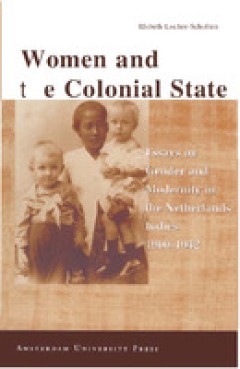
Women and the Colonial State: Essays on Gender and Modernity in the Netherlan…
Woman and the Colonial State deals with the ambiguous relationship between women of both the European and the Indonesian population and the colonial state in the former Netherlands Indies in the first half of the twentieth century. Based on new data from a variety of sources: colonial archives, journals, household manuals, children's literature, and press surveys, it analyses the women-state re…
- Edition
- Ed. 1
- ISBN/ISSN
- 9789053564035
- Collation
- 251
- Series Title
- -
- Call Number
- 901 LOC w

Points of Entanglement in French Caribbean Travel Writing (1620-1722)
This open-access book investigates Francophone Caribbean literature by exploring and analyzing French seventeenth-century travel writings. The book argues for a literary re-examination of the representation of the early colonial Caribbean by proposing theoretical linkages to contemporary Caribbean theories of creolization and archipelagic thinking. Using Édouard Glissant’s notion of points o…
- Edition
- -
- ISBN/ISSN
- 9783031233562
- Collation
- -
- Series Title
- -
- Call Number
- -
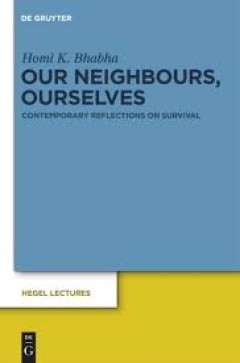
Our Neighbours, Ourselves Contemporary Reflections on Survival
Homi K. Bhabha delivered the 2010 Hegel lecture, evoking the spirit of Hegel in an attempt to understand contemporary issues of ethical witness, historical memory and the rights and representations of minorities in the cultural sphere. Who is our neighbour today? What does hospitality mean for our times? Why is the recognition of others such an agonizing encounter with the alterity of the self?…
- Edition
- -
- ISBN/ISSN
- 9783110262445
- Collation
- -
- Series Title
- -
- Call Number
- -
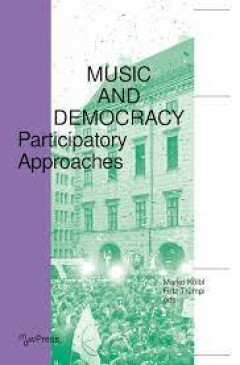
Music and Democracy Participatory Approaches
Music and Democracy explores music as a resource for societal transformation processes. This book provides recent insights into how individuals and groups used and still use music to achieve social, cultural, and political participation and bring about social change. The contributors present outstanding perspectives on the topic: From the promise and myth of democratization through music techno…
- Edition
- -
- ISBN/ISSN
- 9783839456576
- Collation
- -
- Series Title
- -
- Call Number
- -
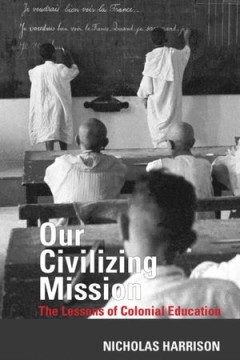
Our Civilizing Mission : The Lessons of Colonial Education
Our Civilizing Mission is at once an exploration of colonial education and a response to current anxieties about the historical and conceptual foundations of the ‘humanities’. On the one hand, it treats colonial education as a facet of colonialism. It draws on a rich body of work by ‘colonized’ writers – starting with Edward Said, then focusing on Algeria – that attests to the suffe…
- Edition
- -
- ISBN/ISSN
- 9781786941763
- Collation
- -
- Series Title
- Contemporary French and Francophone Cultures
- Call Number
- 370 HAR o
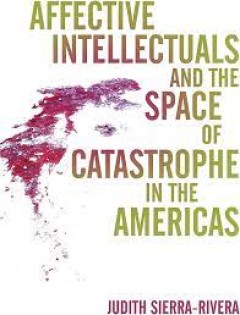
Affective Intellectuals and the Space of Catastrophe in the Americas
Most importantly, the book shows how literature constitutes an alternative public sphere for Black people. In a society largely controlled by white supremacist actors and institutions, Black authors have conjured fiction into a space where hard questions can be asked and answered and where the work of combatting collective, racist suppression can occur without replicating oppressive hierarchies…
- Edition
- -
- ISBN/ISSN
- 9780814254950
- Collation
- -
- Series Title
- -
- Call Number
- -
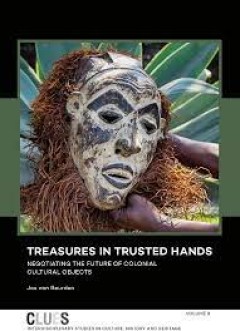
Treasures in Trusted Hands Negotiating the Future of Colonial Cultural Objects
This pioneering study charts the one-way traffic of cultural and historical objects during five centuries of European colonialism. It presents abundant examples of disappeared colonial objects and systematises these into war booty, confiscations by missionaries and contestable acquisitions by private persons and other categories. Former colonies consider this as a historical injustice that has …
- Edition
- -
- ISBN/ISSN
- -
- Collation
- -
- Series Title
- -
- Call Number
- -

Equal subjects, unequal rights: Indigenous people in British settler colonies…
This book focuses on the ways in which the British settler colonies of Australia, Canada, New Zealand and South Africa treated indigenous peoples in relation to political rights, commencing with the imperial policies of the 1830s and ending with the national political settlements in place by 1910. Drawing on a wide range of sources, its comparative approach provides an insight into the historic…
- Edition
- -
- ISBN/ISSN
- 9780719060038
- Collation
- -
- Series Title
- -
- Call Number
- -
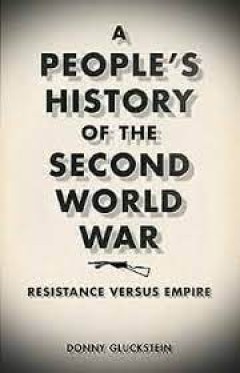
A People's History of the Second World War Resistance Versus Empire
A People's History of the Second World War unearths the fascinating history of the war as fought 'from below'. Until now, the vast majority of historical accounts have focussed on the conflict between the Allied and Axis powers for imperialist mastery. Donny Gluckstein shows that in fact between 1939 and 1945 two distinct wars were fought – one ‘from above’ and one ‘from below’. Using…
- Edition
- -
- ISBN/ISSN
- 9781849647205
- Collation
- -
- Series Title
- -
- Call Number
- -
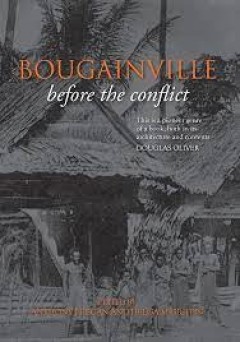
Bougainville before the conflict
One of the most beautiful island groups of the Pacific, Bougainville has a remarkable history. Tragically, it is as the site of devastating civil conflict that Bougainville is perhaps best known. In exploring the rich environmental, cultural and social heritage of Bougainville before the conflict, this collection provides an insight into the long-term causes of the crisis. In doing so, it surve…
- Edition
- -
- ISBN/ISSN
- 9781921934230
- Collation
- -
- Series Title
- -
- Call Number
- -
 Computer Science, Information & General Works
Computer Science, Information & General Works  Philosophy & Psychology
Philosophy & Psychology  Religion
Religion  Social Sciences
Social Sciences  Language
Language  Pure Science
Pure Science  Applied Sciences
Applied Sciences  Art & Recreation
Art & Recreation  Literature
Literature  History & Geography
History & Geography